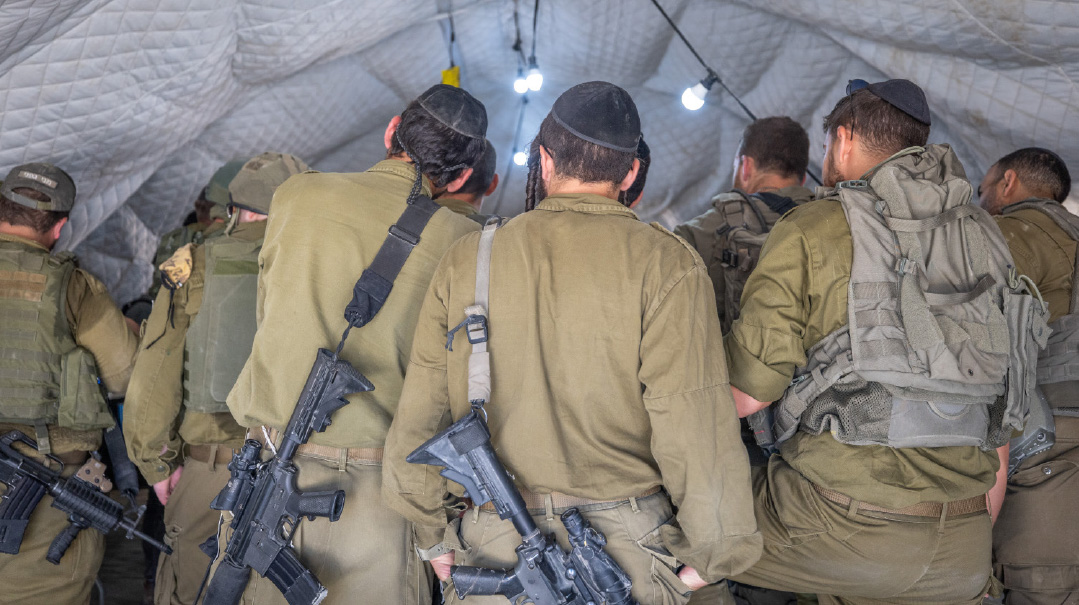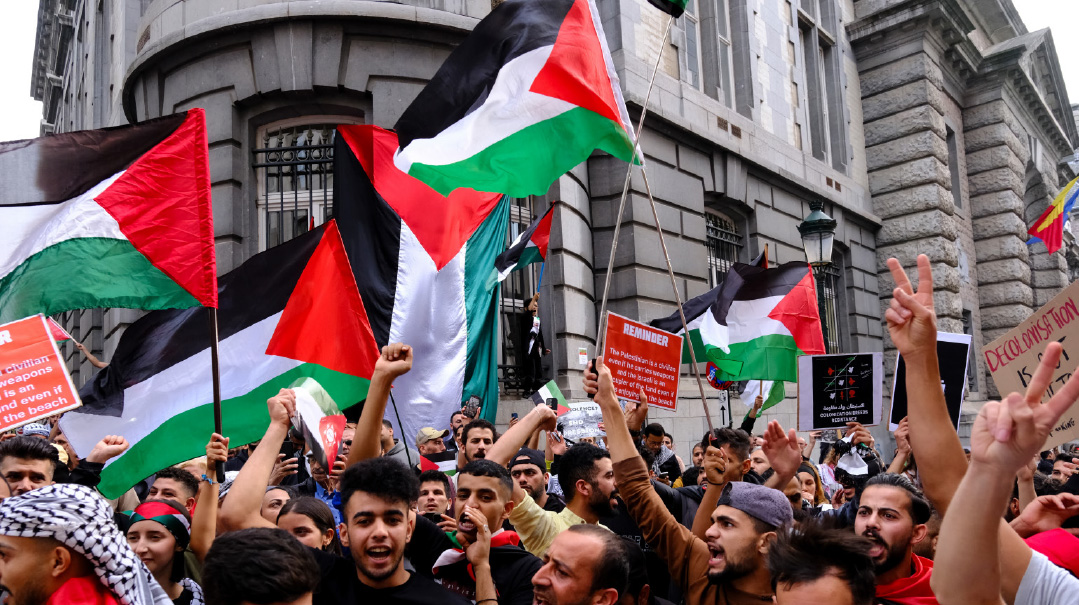If Not Now

The Hamas pogrom made two things clear: Israel was in the fight of its life against Iran, and Bibi’s legacy was in tatters

I
magine reaching the age of 75, and your life’s work still lies ahead of you. That’s the strange position that Israel’s forever leader now occupies as Iran’s proxies fall and the decades-long conflict comes to a crisis point.
Three years ago, during his brief sojourn in the opposition, Netanyahu published his autobiography, titled Bibi: My Story. What a tale it told: a gripping account of his high-achieving youth in Israel and America, service in the vaunted Sayeret Matkal unit, UN ambassadorship, 1996 election as the country’s youngest ever prime minister, 1999 downfall, triumphant 2009 return and 12 years at the helm until being toppled again in 2021.
The crisp prose conveys the governing philosophy, media savvy, and political wiles that have made Bibi one of the world’s leading statesmen. Over 650 pages, Netanyahu made a compelling case that his own visionary leadership was the crucial factor in the bid to leverage Israeli innovation and hard power to make peace with Arab states. He set out the central place that Iran occupies in his thinking, and recounted how he combined covert action against Tehran’s nuclear program with diplomatic moves to isolate the Iranian regime.
The last page contained a postscript noting that Bibi had won reelection. Rather like Marlboro Man riding off into the sunset, it seemed that the rest was a question of time. Under Mr. Security, Israel was set for prosperity and Middle East peace with the Saudi accession to the Abraham Accords.
Then came Simchas Torah 5784. The Hamas pogrom made two things clear: Israel was in the fight of its life against Iran, and Bibi’s legacy was in tatters.
Regardless of the fact that an entire generation of Israeli generals had failed, it was Bibi’s security concept that was proven illusory. Only by Divine grace did Israel escape a cataclysmic simultaneous invasion by Hamas and Hezbollah. “Mr. Security” — Netanyahu’s old campaign title — seemed a thing of the past.
From that point on, the multifront war that Bibi leads has doubled as a battle to restore his reputation. The bravery and self-sacrifice of Israel’s soldiers have been blessed with tremendous Heavenly assistance, with stunning results. Hamas is reduced to a guerilla force, Hezbollah’s leaders killed or maimed, Syria removed from Iran’s orbit, and Tehran itself stripped of its defenses.
It’s a mark of Israel’s restored deterrence that friend and foe have adopted a new tone lately. President Trump — no fan of a loser — has grown markedly warmer to Bibi and Israel in general as the IDF’s battlefield successes have mounted. Even the Al-Qaeda alums now at the controls in Damascus are making noises about peace amid a recognition that Israel has roared back.
But it’s delusional to think that the clock has been reset to October 6 for Israel, and Bibi personally. That’s because a twin dynamic is forcing a showdown: Netanyahu’s rehabilitation and legacy depend on defeating Iran, and Iran in turn feels cornered.
Grievously weakened, and shorn of its most powerful proxies, the Iranians are growing desperate. The ring of fire strategy to surround Israel with a forest of missiles has failed. Beirut lies in ruins while Tel Aviv stands. The billions invested over decades are gone, and when its last proxy — the Houthis — are defanged, Tehran will be faced by a choice: sue for peace, or try to guarantee the regime’s survival by reaching for the nuclear option.
The breakout time to a nuclear weapon is now measured in weeks and depends solely on Khamenei’s order. What stands in the Ayatollah’s way? The knowledge that a dash for the bomb would trigger an Israeli strike on the nuclear facilities — and possibly decapitation of the regime itself.
Yet despite that risk, with its regional defense shield now a smoking ruin, alongside its Russian-supplied antiaircraft systems, the Iranian leadership may feel that it’s time to cash in the ultimate insurance policy, in the form of a nuke.
Having based his entire career on denying Tehran that option, Bibi would have no choice but to act to prevent that happening. A record of economic prosperity and defeating Hezbollah and Hamas would count for naught if Iran became a nuclear power. The stain of October 7 would pale into insignificance compared to that catastrophic event.
Thus it’s decision time on both sides — the denouement of a decades-old face-off.
Does Israel have what it takes to knock out the nuclear program? Given the Israeli Air Force’s lack of heavy bombers and bunker-busting capacity, there have long been doubts about whether it could do the job.
It’s always possible that Israel has a plan to use brain, not brawn, when knocking out the Iranian nuclear program. For the effectiveness of intel-driven operations, think back to the Stuxnet computer virus of 2010 or the recent beeper operation that took out Hezbollah. Who knows? Centrifuges might mysteriously go berserk across Iran once again, or some bunkers might miraculously collapse.
Surely, though, Bibi and Ron Dermer will be putting the case to Donald Trump that with the hard work of degrading Iran’s defenses already done, the time is now right to unleash American air power to obliterate Iran’s sprawling nuclear industry.
Trump aims never to start a war, but he’d delight in finishing one — and he’s already demonstrated a willingness to deploy short, sharp jabs of maximum force in pursuit of a limited goal. What a deterrent signal it would send to Russia and China if Trump resumed office by deploying an aerial armada to remove the Iranian menace.
We’re not privy to the secrets of Divine Hashgachah, but the startling gains made by Israeli arms since the beginning of the war represent a turnaround from the hester panim evident on October 7. Will Tehran’s defeat be the next stage in the Heavenly show that has played out for 15 months?
With the Iranians weaker than ever, and his own legacy on the line, Bibi will remember what he said back in 2009 when a new nuclear development facility was revealed beneath a mountain in Qom, central Iran.
In a briefing to a group of senators, he quoted Hillel Hazaken: “If not now,” he told the influential politicians, “then when?”
(Originally featured in Mishpacha, Issue 1043)
Oops! We could not locate your form.







